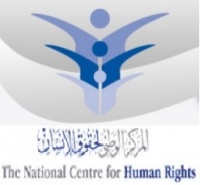Home » Reports » JOR - News » Jordan: National Centre for Human Rights Review Deferred To Fall 2016 as Legal Reform is Undertaken
The main issues raised by the SCA that are of concern to Alkarama were: (1) the JNCHR's insufficiently transparent and objective selection and dismissal procedures; (2) the inclusion of political representatives in the JNCHR; (3) the inadequate funding and financial autonomy; and (4) the unannounced access to places of deprivation of liberty that is not guaranteed. Although the SCA recognised that the proposed amendments included provisions that would only ensure the partial compliance of the JNCHR with the Paris Principles, Alkarama hopes that the Jordanian NHRI will use the SCA's report to advocate for more substantive amendments at the national level.
1. Appointing and dismissal procedures: insufficiently transparent and objective
Although the Paris Principles require that a process that promotes merit-based selection and ensure pluralism is necessary to ensure the independence of, and public confidence in the NHRI, the SCA noted in its report that, apart from providing that the members of the JNCHR's Board of Trustees − its main organ − are to be appointed by Royal Decree upon recommendation of the Prime Minister, the law remains otherwise silent on the selection and appointment procedures. It would need instead to "establish clear and uniform criteria upon which all parties assess the merit of eligible applicants" and to "promote broad consultation and/or participation in the application, screening, selection and appointment procedures."
Moreover, whilst noting that the JNCHR law is silent on the grounds for dismissal of its members, the SCA recalls that "the grounds for dismissal must be clearly defined" and that "the dismissal must be made in strict conformity with all the substantive and procedural requirements as prescribed by law. It should not be allowed to be based solely on the discretion of the appointing authorities."
2. Membership: presence of political representatives
Another issue of concern for the SCA is the presence of two Parliamentarians as members of the JNCHR's Board of Trustees, which is a decision-making organ.
Independence from the government is indeed a cornerstone of the Paris Principles, and this in its composition, operation and decision-making. For this reason, government representatives and members of the Parliament should not be members of, nor participate in, decision-making bodies of the NHRI, or, at the very least, "should be excluded from attending parts of the meetings where final deliberations and strategic decisions are made, and they should not be able to vote on these matters."
3. Inadequate funding and financial autonomy
Although the Paris Principles require that any NHRI "shall have an infrastructure which is suited to the smooth conduct of its activities, in particular adequate funding [...] in order to be independent of the Government and not be subject to financial control which might affect its independence," the SCA report notes that JNCHR's activities are compromised by a lack of funds. This entails, for instance, that its Board members are not remunerated and that regional offices have not yet been opened. Moreover, with the entireness of the JNCHR's funds coming from the government, the JNCHR also needs the approval from the Council of Ministers for external sources of funding, which seriously undermines its independence.
4. Unannounced access to places of deprivation of liberty not guaranteed
Finally, despite recognising that "in some circumstances, it may be necessary to provide notice for security reasons," the SCA encourages the JNHRC to "conduct 'unannounced' visits as this limits opportunities for detaining authorities to hide or obscure human rights violations and facilitates greater security." As pointed out in Alkarama's report, even though the JNCHR theoretically holds the right to visit places of detention, it actually requires previous authorisation from the authorities.
Welcoming the SCA report, Alkarama now hopes that the Jordan National Centre for Human Rights (JNCHR) will take urgent measures, including further amendments to its enabling law in order to enhance its independence and be able to effectively protect and promote human rights in the country. Alkarama will continue to monitor closely its actions in view of reaccreditation postponed to November 2016.
For more information or an interview, please contact the media team at This email address is being protected from spambots. You need JavaScript enabled to view it. (Dir: +41 22 734 1008)
 Algeria
Algeria Bahrain
Bahrain Djibouti
Djibouti Egypt
Egypt Iraq
Iraq Palestine/Israel
Palestine/Israel Jordan
Jordan Kuwait
Kuwait Lebanon
Lebanon Libya
Libya Mauritania
Mauritania Morocco
Morocco Oman
Oman Qatar
Qatar Saudi Arabia
Saudi Arabia Sudan
Sudan Syria
Syria Tunisia
Tunisia United Arab Emirates
United Arab Emirates Yemen
Yemen Other Countries
Other Countries







